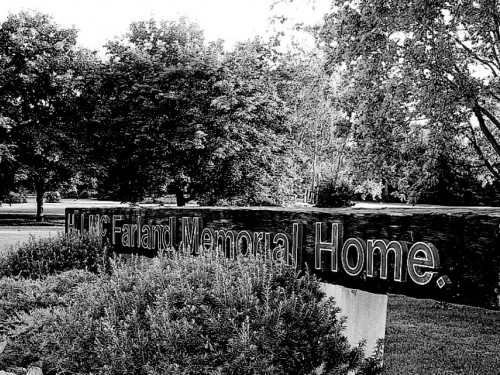County News
The road back

 McFarland nursing homes takes first steps in a five-year journey
McFarland nursing homes takes first steps in a five-year journey
The challenges remain. The H.J. McFarland Memorial Home continues to grapple with an array of issues including alleged abuse, inadequate reporting and low staff morale. Eighteen months after the issues at the nursing home came to a dramatic climax with the dismissal of the administrator and director of care, the two most senior positions in the home, McFarland still struggles.
Susan Turnbull manages the municipally owned facility for the County. The 19,000 square-foot facility is home to more than 80 residents.
She says claims of abuse, typically between residents, remain a persistent problem. Twice in the first three months of this year, the OPP have been called to restore peace in the home. Staff turnover and sick time remains unacceptably high. There remains some resistance among staff to mandated reporting procedures— documenting the care and condition of residents When rationing time and energy in difficult circumstances, the benefit of these activities is not always apparent.
Notwithstanding the challenges, Turnbull’s update to a committee of council last week was upbeat. She says fresh resources are now being put into training and staff at the facility. While much of last year was spent addressing specific issues raised in annual provincial inspection reports, the first quarter of 2016 saw the development and implementation of key training and support programs at McFarland.
Of the eighteen critical incidents cited in the provincial inspection report, Turnbull noted that all have now been resolved.
Click here to view the full report.
“We are beginning to close the gap,” said Turnbull. She had previously cautioned council and other stakeholders that the challenges facing McFarland were long-term in nature and defied quick fixes. She has said it would be a five- to seven-year turnaround—a time frame she reiterated last week.
There are, however, real and tangible signs of improvement. The home closely monitors key indicators: worsening behaviours; worsening continence; worsening mood; worsening ADLs (a measure of mobility); and use of antipsychotics. McFarland improved in every measure in the most recent year compared to the year before. In most cases, the percentage of residents presenting worsening indicators has declined steadily over the past three years.
In other measures—worsening pressure ulcers; new pressure ulcers, one or more infections, worsening cognition, and percentage of residents who fell in the previous 30 days—all but one improved in the past year.
Falls continue to pose a problem at McFarland— as they do in any setting that serves the aged.
One resident fell last year and broke her hip. It is the kind of injury that can lead to complications that, in some cases, can be life-threatening in older residents. This resident has now fully recovered, but her family fears another fall could be fatal. So they want her restrained. Her movements are now limited by five different restraint systems.
“The family doesn’t want mom to break another bone,” recounted Turnbull. “But she doesn’t want to be restrained.”
It is a window into the unique challenges of serving a fragile community, a majority of whom suffer from diminished capacity and the ability to understand their surroundings and the world around them.
Caught in between are staff and administrators trying to serve residents and their families while satisfying provincial regulators and council overseers. Often, the effort seems in vain—the challenges poorly understood, the achievements fleeting.
It is why Turnbull has made it a priority to keep council and the community up-to-date on the progress, and setbacks, as the facility works through transformation.
The bottom line is that improvements in the Case Mix Index (CMI) over the past year have led to a $119,000 increase in funding next year. Turnbull cautions progress won’t happen in a straight line— that there remain serious challenges and long-term issues. Specifically, she expects a short-term decline in the CMI will lead to a decrease in funding.
Councillor Gord Fox wanted to know about staff morale.
“Is everyone smiling and happy?” asked Fox, more rhetoric than question.
Turnbull acknowledges that difficulties remain.
“We are still operating with too few RNs, RPNs [registered practical nurses] and PSWs [personal support workers], and turnover hasn’t dropped significantly,” said Turnbull. “But what has changed is that we are talking about the problems. We are recruiting new staff. I am encouraged that staff are being open in their concerns and issues in a way they haven’t been before.”
Currently, McFarland is recruiting a new administrator and director of care, replacing interim senior management roles filled for the past 18 months by St. Elizabeth Health Care staff.
Turnbull says over the next few months, the McFarland Home will focus on the transition to the new leadership team and solidifying the structures and procedures in the home aimed at improving overall quality.

Comments (0)